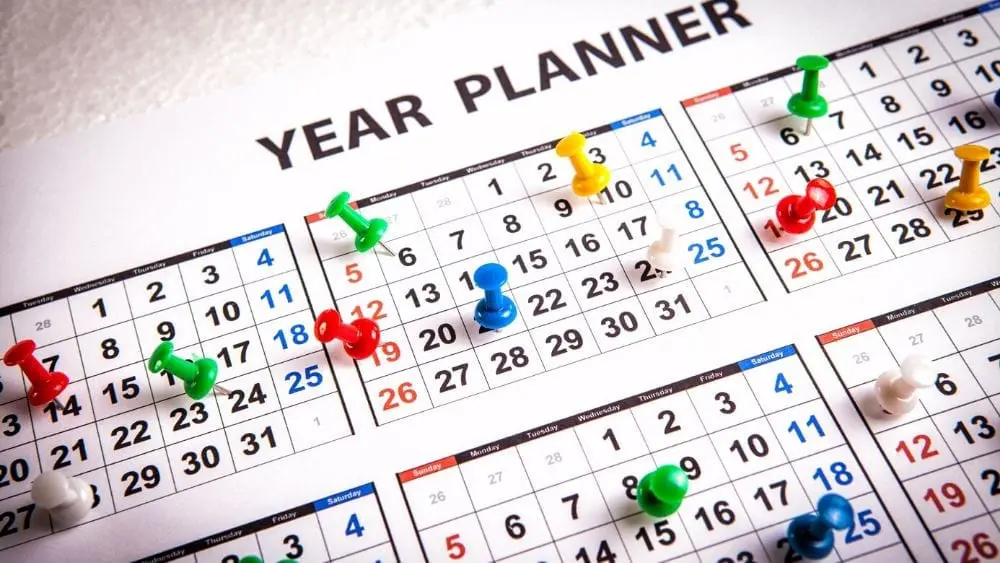
To milk all they can out of their final rent checks, first-time buyers often try to schedule their closings as close to the end of the month as possible. But there’s another reason practically all buyers, not just rookies, prefer to settle up late in the month – interest.
The later you close – or settle or close escrow, depending on your location – the less interest that’s due the lender. And that means you won’t need to bring as much cash to the table.
Mortgage interest is collected in arrears. Consequently, if the loan begins on the first of the month following the closing date, borrowers are required to pay at closing all the interest due from the settlement date until the end of the month in which they closed. The fewer days left in the month, the less upfront interest that’s due at settlement.
That’s why perhaps 95 percent of all real estate closings, “take place during the last week of the month,” many on the last day, says Joe Drum, a senior vice president at the Financial National Title Group in Santa Barbara. After all, total cost is a big consideration for most people buying a home.
Drum offers this example: A borrower who closes on May 30 would pay two days interest, May 30 and 31, plus one month’s interest for all of June at settlement. Then, the next and full payment would be due July 1. However, if the closing was on May 15, the borrower would owe interest from that date through June 30, and that payment would be due the next day.
Close Early in the Month for Convenience and Accuracy
If a few hundred dollars extra won’t put a dent in your budget, there are several good reasons to consider closing earlier. One is that fewer mistakes are made when closing agents aren’t rushed because they are trying to accommodate everyone they can. Another is that you’ll get better service.
“Everybody’s scrambling at the end of the month,” says Patty Vahle, an agent with Royal Shell Real Estate in Bonita Spring, Fla. “So the middle of the month may be better.”
Vahle says she’s been stymied more than a few times by delays while her clients sit and wait – and wait – while the closing agent finishes up with the borrowers in front of them. She also says she sees more errors that have to be corrected in order for the closing to proceed.
And it’s not just closing attorneys and escrow companies that are under the gun at the end of the month. It’s everyone down the line – appraisers, surveyors, insurance agents, even lenders. And it’s often a chain reaction, where an error by one settlement service provider is perpetuated by the next.
Close Later, Pay the Mortgage Sooner
If cash is in short supply, closing as late in the month as you can can make economic sense. However, the later you close, the sooner your first full mortgage payment will be due.
Here’s another example of how it works: Say you close on Jan. 28. You’ll have to pay three days of interest – the 29th, 30th and 31st – that ordinarily would be due with your February payment. It’s called “odd days interest” or “prepaid interest.”
If you chose to close on Jan. 15, however, you’ll owe 16 days of prepaid interest – from the 16th through the 31st. And if interest charges are running, say $25 a day for simplicity purposes, the difference between three days of interest and 26 is $400.
There’s no real cost savings, of course. You either pay now or you pay later, so it’s more of a cash flow change rather than a savings strategy.
Either way, your first payment won’t be due until March. And because interest is collected in arrears, your March payment will include the interest owed for all of February.
Because cash is an obstacle for many buyers, most lenders will grant a credit at settlement if the closing is held early enough in the month. How early depends on the loan. If the mortgage is insured by the Federal Housing Administration or guaranteed by the Veterans Administration, you can usually receive a credit if you close by the seventh. If yours is a conventional mortgage, a credit is typically available if you settle by the 10th.
However, lenders don’t offer interest credits automatically, so you’ll have to ask. And if the lender agrees, you’ll pay a little less than you otherwise would at closing. But your first full payment will be due the following month instead of the month after that.
In other words, if you close on Jan. 6, you’ll receive a credit of six days interest. If interest is $25 a day, which means you’ll need $150 less at closing than you ordinarily would. But your first payment on the loan will be due Feb. 1 instead of March 1. And that could be problem if you are on a tight budget.
As you can see, there are tradeoffs up and down the line.
Lots of people like the idea of a one-month reprieve. After all, a full payment so soon after ponying up thousands of dollars at closing, not to mention moving costs and utility company deposits, could present such a serious hardship. In that case, closing later in the month – and postponing that first payment for as long as possible – may be the proper course of action for some.
Your Closing Date Impacts Property Tax and Insurance Costs
The day you choose to settle will affect not only the amount of interest you pay, but the amount owed for property taxes or hazard insurance. No matter what time of the month you close, you’ll have to come up with 14 months’ worth of taxes and two months’ worth of insurance.
If you are refinancing a conventional mortgage, the closing date won’t matter, either. You’ll still pay the same amount of interest whether you close on the eighth or the 28th. The calculations are just different. Interest on the old loan stops on one day and starts on the new loan the very next day.
So, if you close on Jan. 8, you’ll pay eight days of interest on the old loan and 23 days of interest on the new one. If you settle on the 28th, you’ll pay 28 days of interest on the old loan and three days of interest on the new one.

Lew Sichelman is a nationally syndicated housing and real estate columnist. He has covered the real estate beat for more than 50 years.
 When Renting Costs More Than Homeownership
When Renting Costs More Than Homeownership